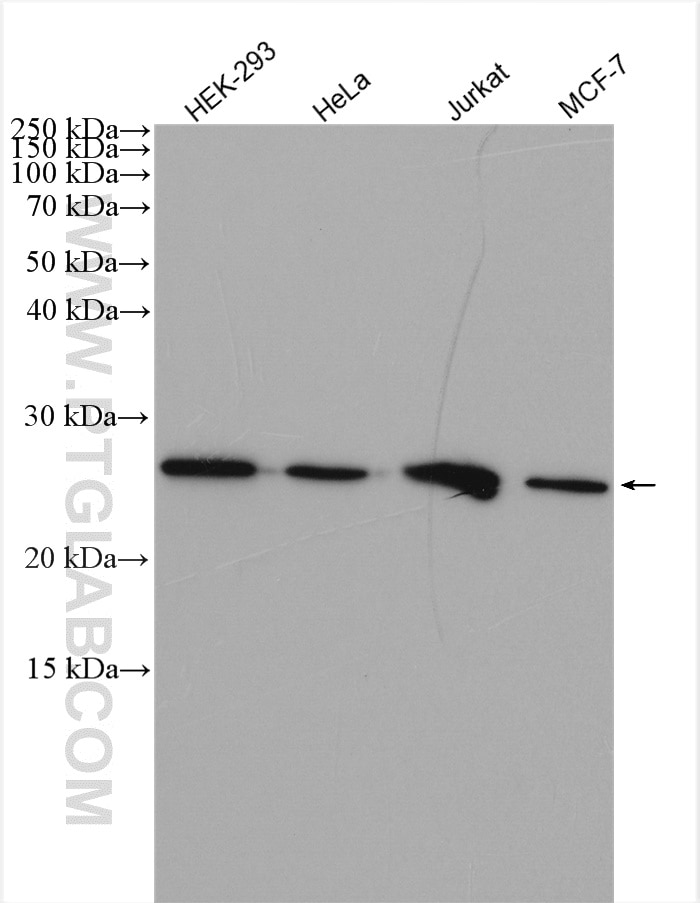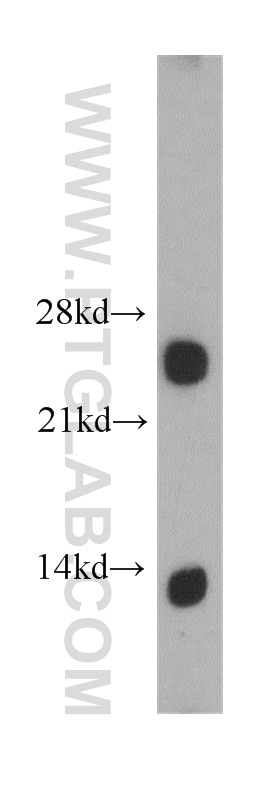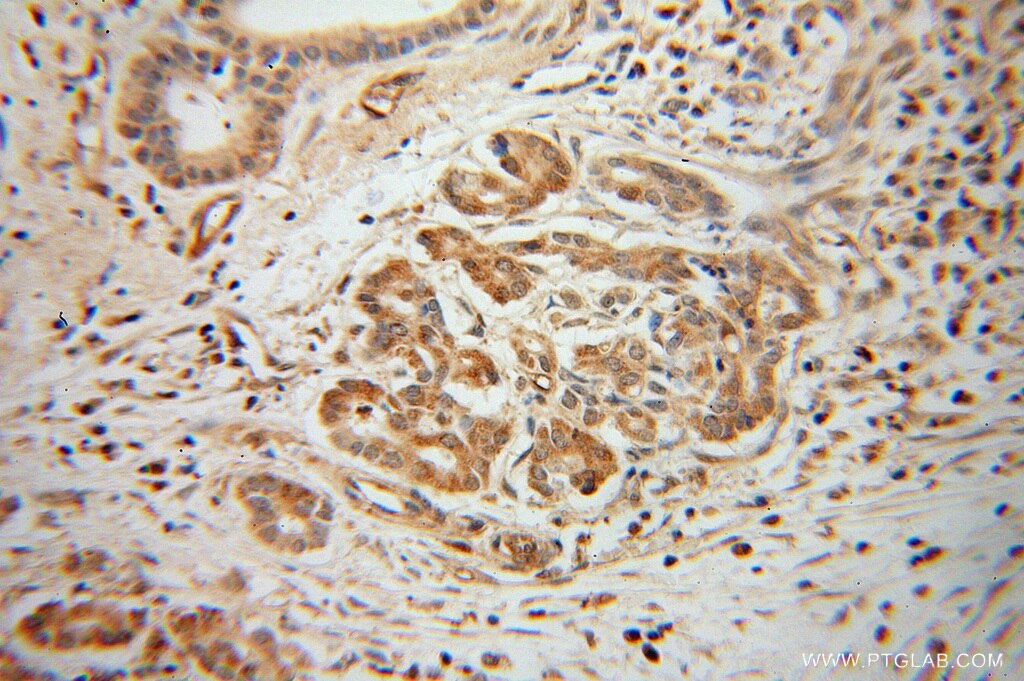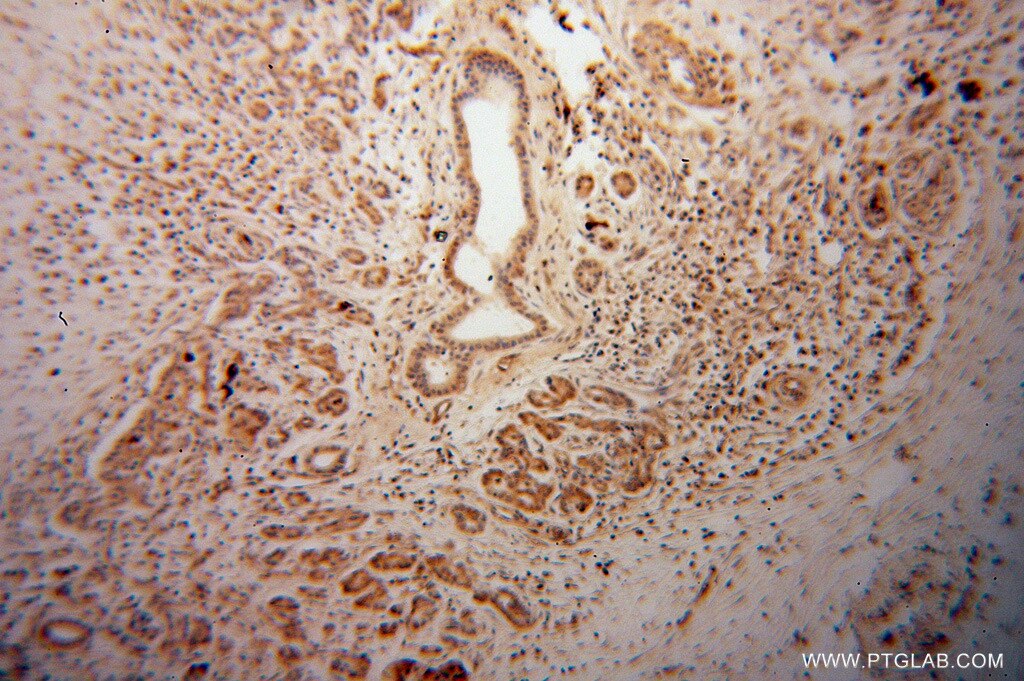Tested Applications
| Positive WB detected in | HEK-293 cells, human brain tissue, HeLa cells, Jurkat cells, MCF-7 cells |
| Positive IHC detected in | human pancreas cancer tissue Note: suggested antigen retrieval with TE buffer pH 9.0; (*) Alternatively, antigen retrieval may be performed with citrate buffer pH 6.0 |
Recommended dilution
| Application | Dilution |
|---|---|
| Western Blot (WB) | WB : 1:500-1:2000 |
| Immunohistochemistry (IHC) | IHC : 1:20-1:200 |
| It is recommended that this reagent should be titrated in each testing system to obtain optimal results. | |
| Sample-dependent, Check data in validation data gallery. | |
Published Applications
| WB | See 1 publications below |
Product Information
14282-1-AP targets ARHGDIG in WB, IHC, ELISA applications and shows reactivity with human, mouse, rat samples.
| Tested Reactivity | human, mouse, rat |
| Cited Reactivity | human |
| Host / Isotype | Rabbit / IgG |
| Class | Polyclonal |
| Type | Antibody |
| Immunogen |
CatNo: Ag5554 Product name: Recombinant human ARHGDIG protein Source: e coli.-derived, PGEX-4T Tag: GST Domain: 1-225 aa of BC047699 Sequence: MLGLDACELGAQLLELLRLALCARVLLADKEGGPPAVDEVLDEAVPEYRAPGRKSLLEIRQLDPDDRSLAKYKRVLLGPLPPAVDPSLPNVQVTRLTLLSEQAPGPVVMDLTGDLAVLKDQVFVLKEGVDYRVKISFKVHREIVSGLKCLHHTYRRGLRVDKTVYMVGSYGPSAQEYEFVTPVEEAPRGALVRGPYLVVSLFTDDDRTHHLSWEWGLCICQDWKD Predict reactive species |
| Full Name | Rho GDP dissociation inhibitor (GDI) gamma |
| Calculated Molecular Weight | 25 kDa |
| Observed Molecular Weight | 25 kDa |
| GenBank Accession Number | BC047699 |
| Gene Symbol | ARHGDIG |
| Gene ID (NCBI) | 398 |
| RRID | AB_2059733 |
| Conjugate | Unconjugated |
| Form | Liquid |
| Purification Method | Antigen affinity purification |
| UNIPROT ID | Q99819 |
| Storage Buffer | PBS with 0.02% sodium azide and 50% glycerol, pH 7.3. |
| Storage Conditions | Store at -20°C. Stable for one year after shipment. Aliquoting is unnecessary for -20oC storage. 20ul sizes contain 0.1% BSA. |
Protocols
| Product Specific Protocols | |
|---|---|
| IHC protocol for ARHGDIG antibody 14282-1-AP | Download protocol |
| WB protocol for ARHGDIG antibody 14282-1-AP | Download protocol |
| Standard Protocols | |
|---|---|
| Click here to view our Standard Protocols |
Publications
| Species | Application | Title |
|---|---|---|
Oncol Rep Upregulation and hypomethylation of lncRNA AFAP1‑AS1 predicts a poor prognosis and promotes the migration and invasion of cervical cancer. | ||
Cancer Cell Chemotherapy awakens dormant cancer cells in lung by inducing neutrophil extracellular traps |










